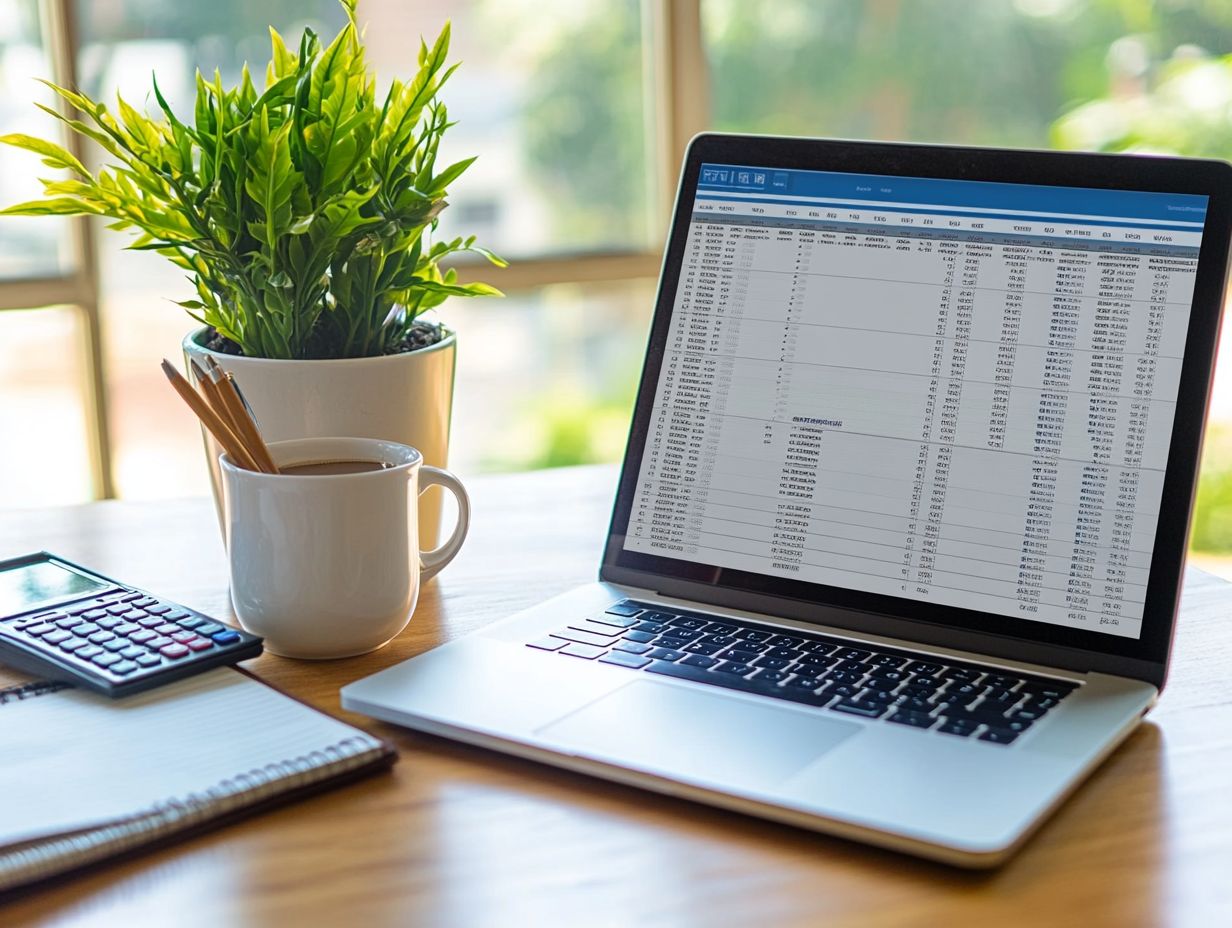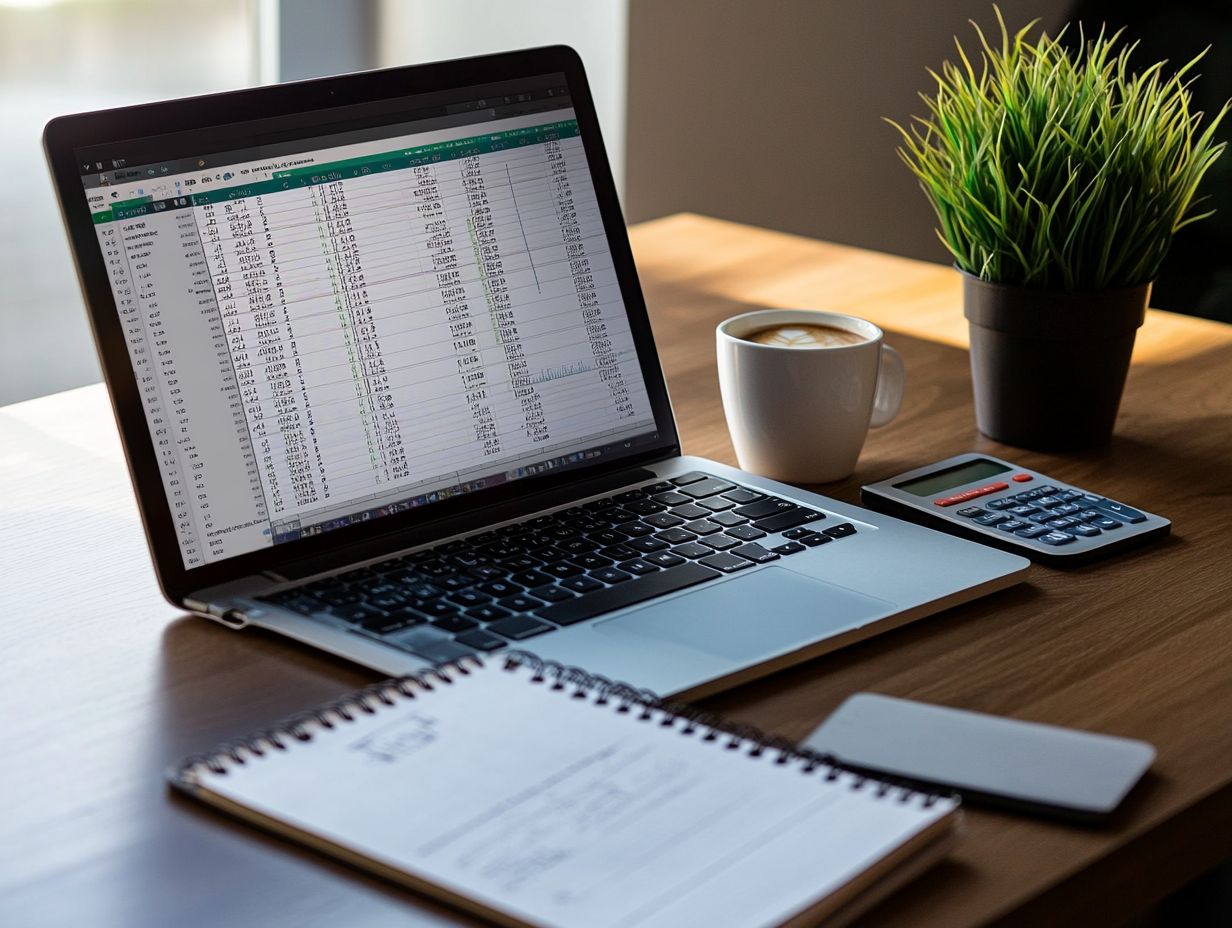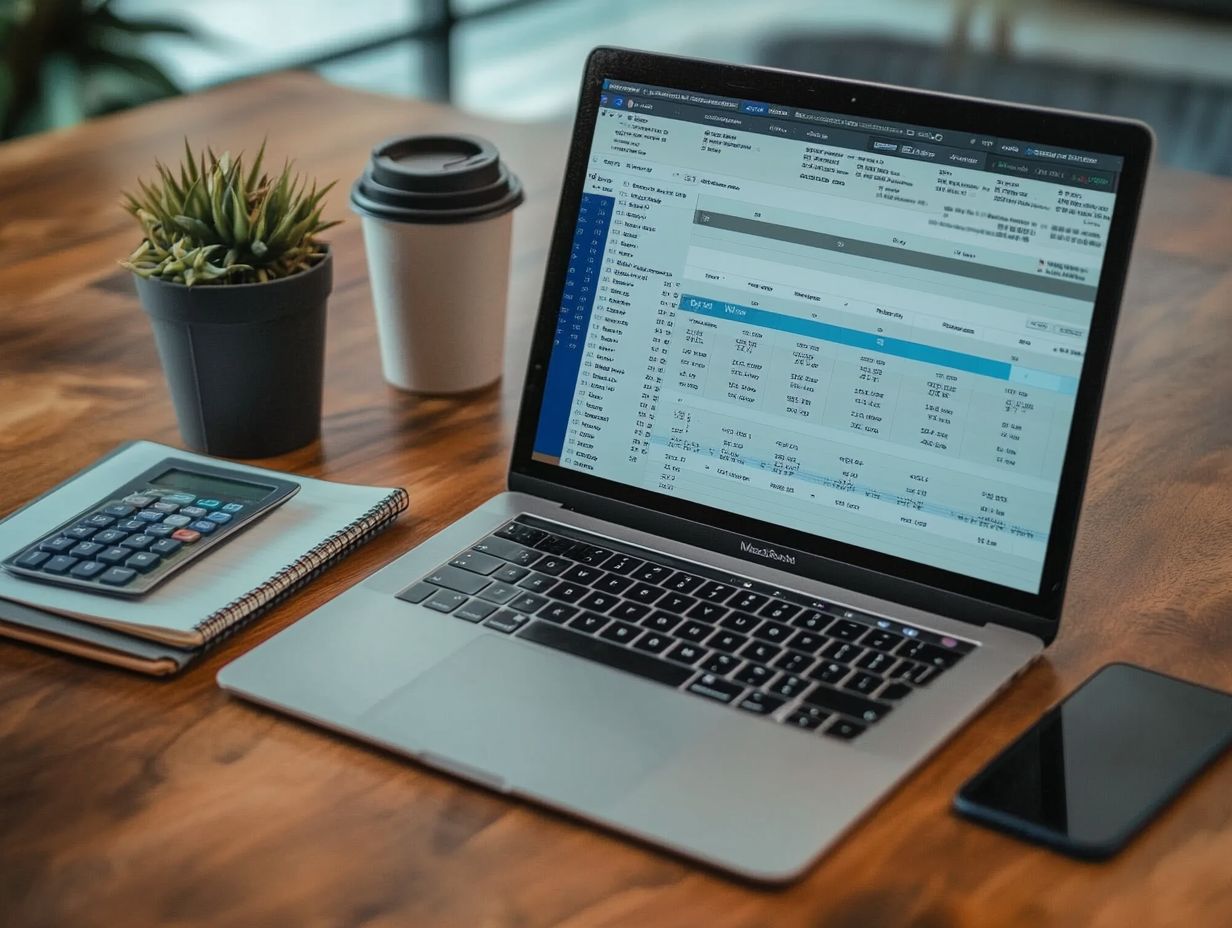How to Budget on a Variable Income as a Freelancer
Freelancers often face financial uncertainty. Monthly income can fluctuate, leading to both highs and lows.
This guide explains variable income. It also outlines the challenges freelancers face.
It provides budgeting frameworks tailored for variable incomes, techniques for managing cash flow, and recommendations for financial tools.
The guide also offers strategies for building an emergency fund and saving for retirement. You will learn the best approaches to thrive in the freelancing world and achieve your financial goals.
Contents
- Key Takeaways:
- Understanding Variable Income
- Creating a Budget on a Variable Income
- Managing Cash Flow
- Budgeting Tools and Resources
- Saving for the Future
- Tips for Staying on Track
- Frequently Asked Questions
- Can I still create a budget with a variable income as a freelancer?
- How do I determine my monthly income as a freelancer?
- Do I need to track my expenses if my income is variable?
- What should I do if I have a slow month as a freelancer?
- Is it better to save or pay off debt with my variable income as a freelancer?
- How often should I review and adjust my budget as a freelancer with a variable income?
Key Takeaways:
- Learn why variable income requires a unique budgeting strategy.
- Track and assess your income and expenses, set realistic goals, and explore strategies for managing cash flow.
- Utilize budgeting tools and resources, create an emergency fund, and stay disciplined to secure your financial future today.
Understanding Variable Income
The significance of variable income is particularly evident for freelancers and self-employed individuals who experience unpredictable income streams due to their work.
Factors contributing to this unpredictability include inconsistent client payments, fluctuating demand for services, and income streams. These factors complicate budgeting and cash flow management.
For many, this situation requires strong financial habits and effective strategies to navigate the challenges of variable income while still achieving their financial goals.
Defining Variable Income and Its Challenges
Variable income refers to earnings that fluctuate from month to month, a situation commonly encountered by freelancers working with multiple clients and projects.
One significant challenge is inconsistent cash flow. Freelancers may not receive a regular paycheck, and the amounts they earn can vary widely, making it difficult to predict income levels. This uncertainty often leads to stress when covering basic living expenses, including debt repayment and planning for the future.
Another challenge is budgeting. The varying amounts received each month complicate creating a stable budget. Freelancers must develop flexible spending plans and adopt zero-sum budgeting, a budgeting method where every dollar is assigned a specific purpose, as they cannot always depend on the same income level.
Once freelancers identify their monthly expenses, they must prioritize bills due soon and manage discretionary spending, such as groceries, entertainment, or travel. The uncertainty of upcoming income can make this a challenging task. Many freelancers worry about affording essential items like groceries and rent, or even a vacation.
Creating a Budget on a Variable Income
A budget tailored for variable income is created to meet the needs of individuals who earn fluctuating amounts each month. This type of income can vary due to factors such as commissions, bonuses, hours worked, seasonal changes, and tax payments.
Consequently, the budget must ensure that all monthly expenses are covered while also allowing for savings, including contributions to a savings account and financial growth.
Assessing Income and Expenses
Understanding your income and expenses is vital for budgeting, especially with a variable income. It helps you manage your cash flow effectively.
Start by tracking all sources of income, such as freelance work or part-time jobs. This gives you a clearer picture of your overall earnings.
Next, categorize your monthly expenses into fixed (like rent) and variable (like food). This helps you understand your spending habits better.
Develop a savings strategy. Setting aside a percentage of your income immediately builds financial resilience and strengthens your grasp of personal finance.
Setting Realistic Goals
Creating realistic financial goals is key for freelancers with variable incomes. This approach allows for effective financial planning.
For example, a savings percentage plan enables freelancers to set aside part of each paycheck for essential goals like an emergency fund. This not only promotes better spending habits but also provides peace of mind.
Strict budgeting helps freelancers track their income against expenses. This ensures they stay on course and refine their financial strategies.
Managing Cash Flow
Freelancers must effectively manage their cash flow to meet monthly expenses despite income fluctuations.
Strategies for Handling Fluctuating Income
Key strategies for managing fluctuating income include building a financial buffer and estimating income conservatively. These are crucial for freelancers facing inconsistent payments.
By having a financial buffer, freelancers can handle low-income months without stress. Flexible budgeting allows them to prioritize essential costs while saving for discretionary expenses.
Using tools like QuickBooks and FreshBooks simplifies tracking income and expenses. These online tools help streamline financial planning.
Budgeting Tools and Resources
Utilizing budgeting tools can boost your financial management skills, especially with variable income.
Apps and Methods for Tracking Finances
Many budgeting apps can help you track finances. Popular options like QuickBooks, FreshBooks, and Wave offer features for managing income and expenses.
QuickBooks provides reports and automated invoices for income tracking, while FreshBooks offers expense tracking to keep your finances accurate. Both apps cater to individual users and financial advisors.
These tools give valuable insights into spending and financial trends.
Saving for the Future
For freelancers, saving for the future is essential in personal finance. It ensures they can meet their financial obligations and be prepared for emergencies while managing business expenses.
Creating an Emergency Fund and Retirement Plan
Establishing an emergency fund—ideally equal to three to six months’ worth of living expenses—is essential for financial stability. Freelancers should also set aside a portion of their income for retirement planning.
Consider options like a SEP-IRA or SIMPLE IRA, which are special retirement accounts for self-employed people. The appropriate percentage of income to allocate for the emergency fund can vary, but many freelancers opt to save 20% of their income for both emergency and retirement savings.
These retirement options offer tax benefits and allow for higher contribution limits compared to traditional IRAs. This helps promote a more secure financial future.
Tips for Staying on Track
Discipline and a strong financial mindset are essential for adhering to financial plans. This is especially important when confronting fluctuations in income and expenses.
Maintaining Discipline and Adjusting as Needed
Staying disciplined in your budget allows for adjustments in response to reduced income levels and unexpected business profit. Regularly assess your expenses to identify cost cutting measures and eliminate non-essential expenditures.
Dedicating time each month to review both regular expenses and fluctuating costs can reveal opportunities to save more money. Incorporating a flexible budget ensures that you stay on track, even during unforeseen financial difficulties.
Various budgeting tools and apps can assist in these reviews, providing reminders and insights. These financial tools help you manage your monthly expenses effectively.
Frequently Asked Questions
Can I still create a budget with a variable income as a freelancer?
Yes, it is possible to create a budget with a variable income. While it may be more challenging, having a plan is key to managing your finances for stability and success.
How do I determine my monthly income as a freelancer?
Start by looking at your average freelance income over the past few months. If your income fluctuates significantly, use the lower end of that range for a more conservative budget.
Do I need to track my expenses if my income is variable?
Yes, tracking your expenses is crucial. This will help you understand your spending habits and make adjustments as needed, particularly by identifying areas for cost cutting.
What should I do if I have a slow month as a freelancer?
If you have a slow month, it’s crucial to have a contingency plan. This may include having a properly funded emergency fund to manage business-related expenses.
Consider taking on additional projects, cutting back on expenses, or dipping into your savings to cover any gaps in income.
Is it better to save or pay off debt with my variable income as a freelancer?
It’s important to strike a balance between saving and paying off debt. Utilize strategies like zero-sum budgeting to prioritize debt repayment without sacrificing retirement savings.
Prioritize paying off high-interest debt first, but also ensure you have a savings plan for emergencies.
How often should I review and adjust my budget as a freelancer with a variable income?
Review your budget monthly! This practice helps you stay on top of your finances.
Adjust your budget as your cash flow changes. This way, you can maintain positive money habits.









